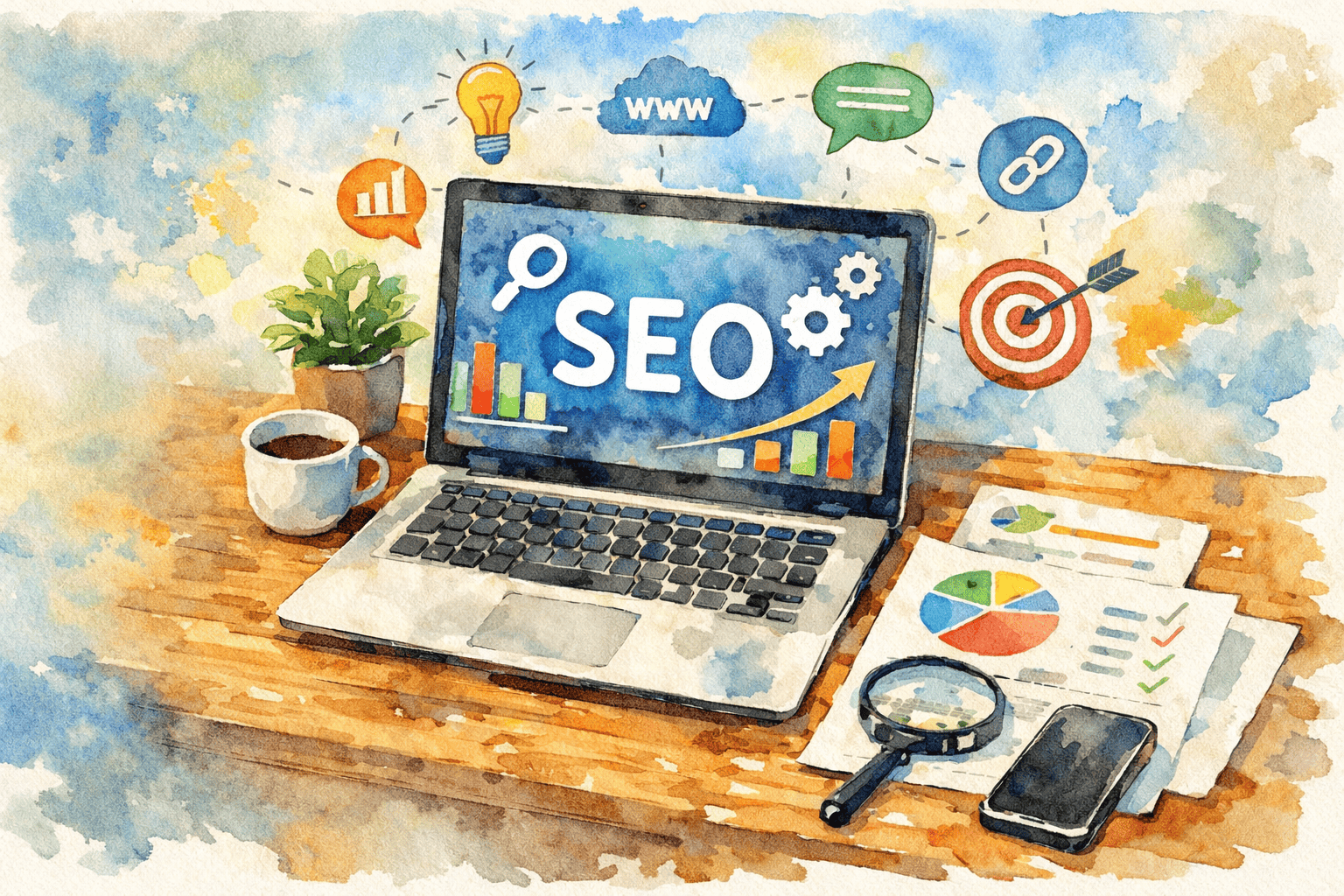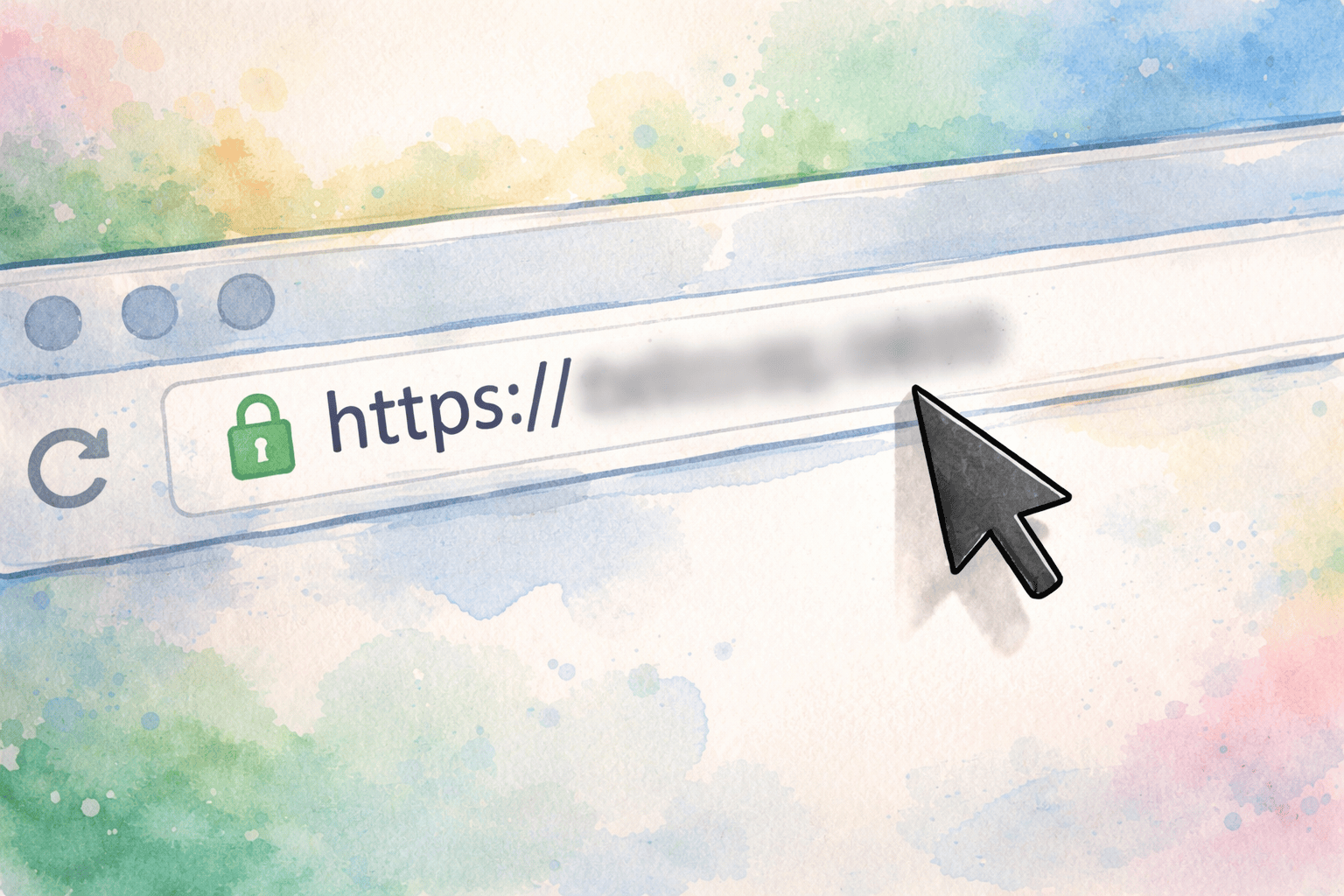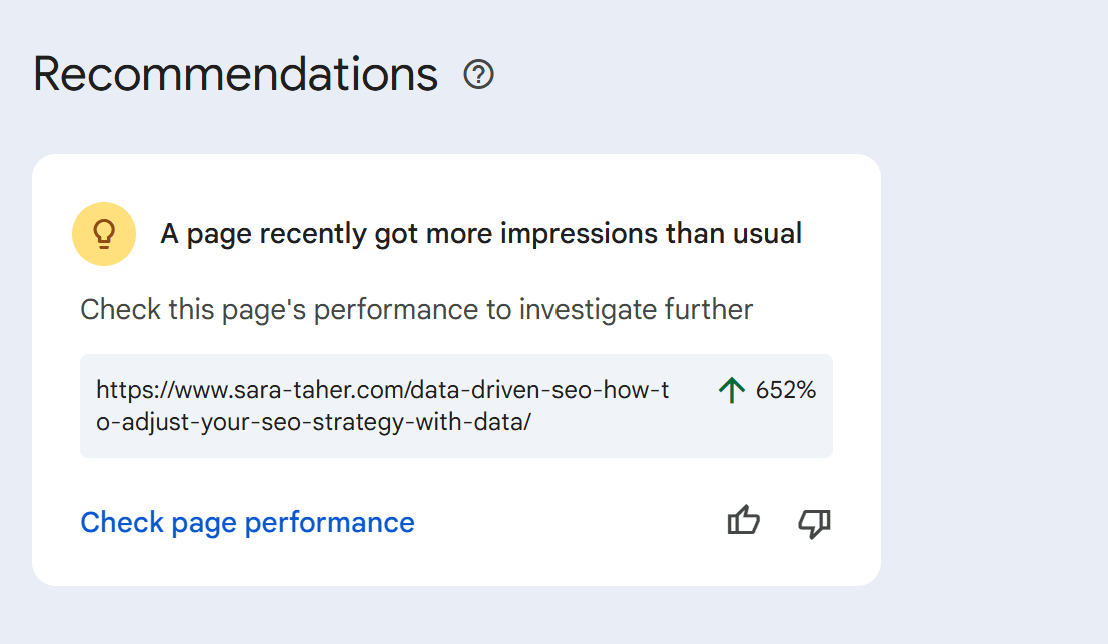The Fall and Fall of DMARGE

Hello Riddlers!
Today's newsletter sponsor is myself 😄 The course is on sale for 25% till Dec 31 2025! Just use this Coupon Code: BLACK2025
--——> Check out the course here <--------
The law of gravity, "what goes up, must comes down"... this is a fact... but in Physics, not SEO!
We've seen reports over and over of websites being thrown out of Google, and never recovering. Perhaps today's story is an interesting example.
Dmarge: Australia’s longest-running men’s lifestyle publication gradually lost visibility and you can see this clearly in the screenshot below.
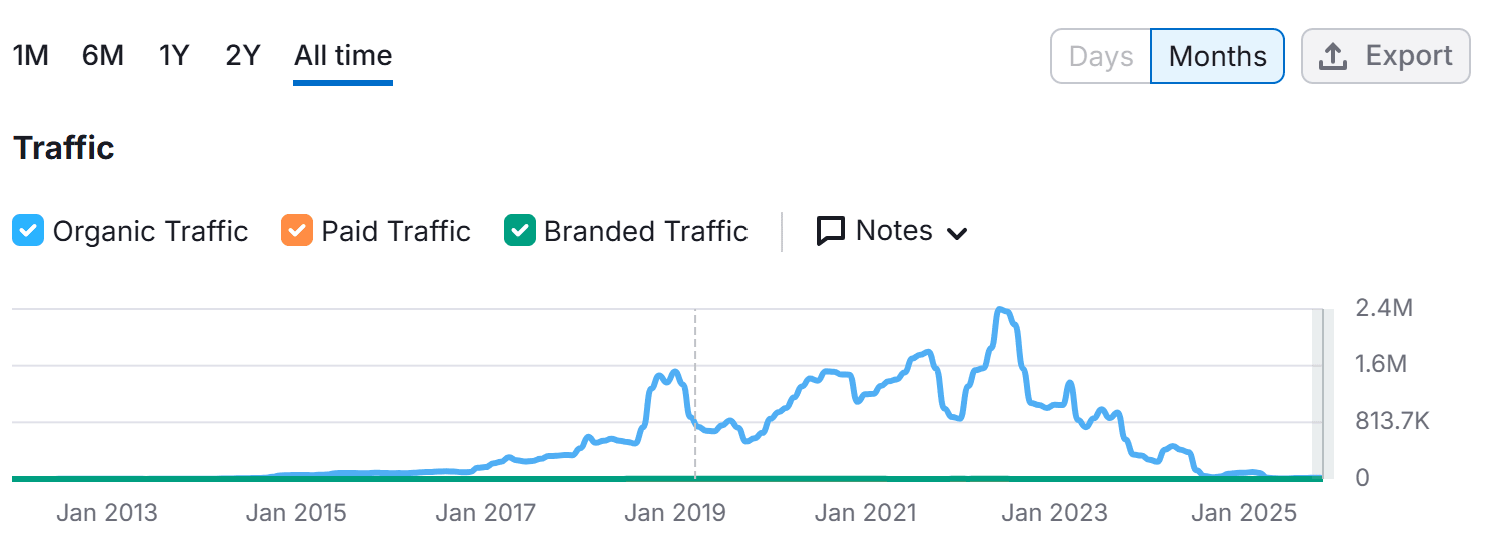
If you're wondering why this website is important, why are we talking about it. DMarge was no small website, they had a print magazine, 100,000 email subscribers, and a few hundred thousand social followers... they were 100% authoritative, and people clearly loved their content.
Over the course of 3 years, they have spent over 200k trying to recover, and nothing worked.
so what really happened and why?
Background Story
DMarge, Australia’s longest-running men’s lifestyle publication, started losing traffic gradually since November 2021 core update, and then came Google's helpful content update (HCU) in August 2022 which hit so many websites, and DMarge was one of those impacted websites.
Things they tried in hopes of recovering:
- Purged what they thought was low quality or thin content.
- Internal links were added to strong-performing articles
- External links were added to brands, research, or original sources
- More than one image was included
- Inline related reads were added to help signal topical relevance
- We deleted all tag pages across the site (honestly good 😄)
- Brought in real subject matter experts.
- Removed entire categories to narrow the scope (this may bring positive results for other websites trying to recover [read about Geeks for Geeks SEO recovery], but it's a big mistake in their situation, as all lifestyle blogs cover a lot of topics)
- Removed/edited swear words or words that may be flagged as inappropriate.
- Reduced the number of ads they had on the website.
- Changed URL structure (huge technical change, got them zero impact)
- More technical SEO
none of that moved the needle.
They also came to the conclusion that they were "soft banned" from Google discover. Their overall traffic just kept going down.
Interestingly, here's a tweet from Luc Wiesman, the founder of DMarge, showing a screenshot where their content — in this case, even Luc’s arm — is used in AI overviews without giving DMarge any credit, why?
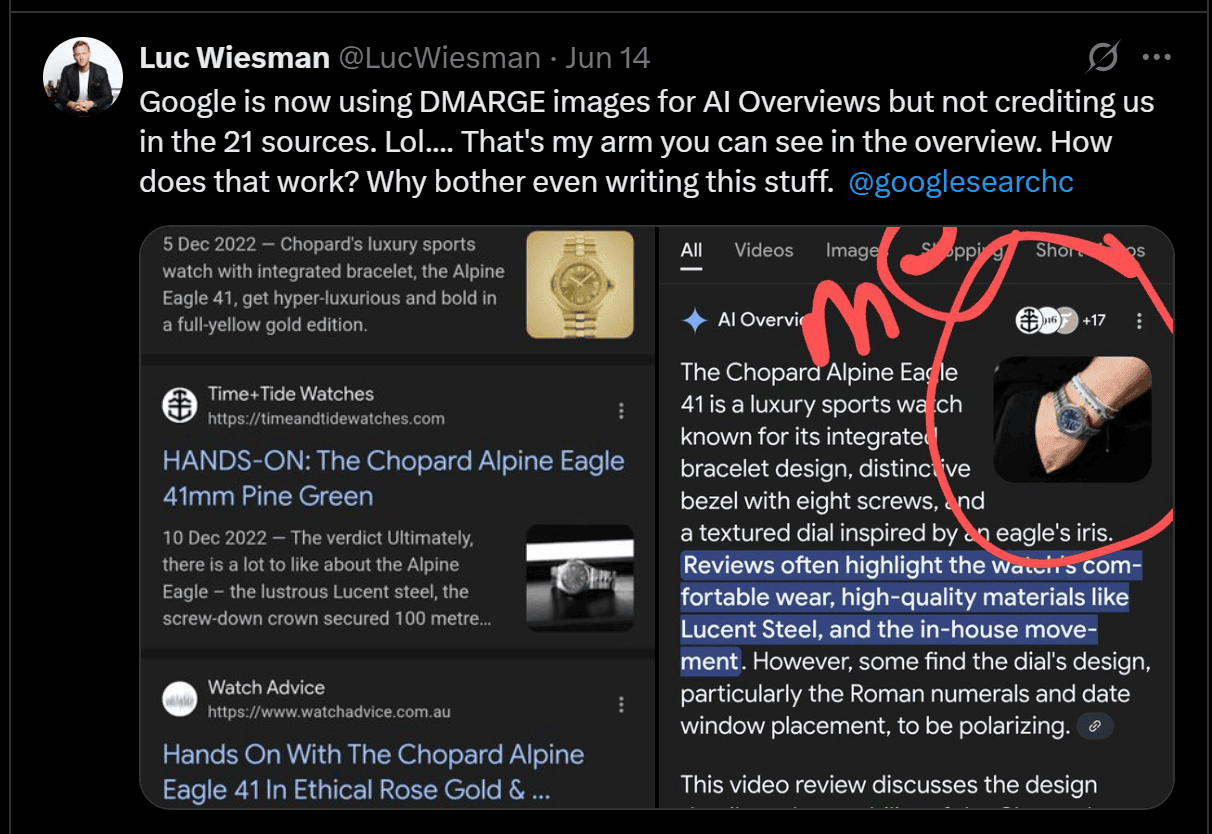
But even websites hit by HCU continued to get visibility in AI Overviews.
.... a lot to think of....
Over the course of 3 years, they have spent over 200k trying to recover, and nothing worked.
The Google Updates
Another thing that needs to be clear, NO ONE can tell for sure how to recover this website, all we know is best practices and what usually works - note how I said usually works.
Since they mentioned the rollout of 2 Google updates in parallel to the traffic declines they have experienced. I thought its a good idea to chat a bit about those.
November 2021 Core Update
They mentioned the first time they noticed a decline (the start point) was with the November 2021 core update. This update rewarded reference websites like Wikipedia, but hit more websites specially socials like Pinterest, Instagram, even Youtube. Here's a list of top losers from Sistrix:
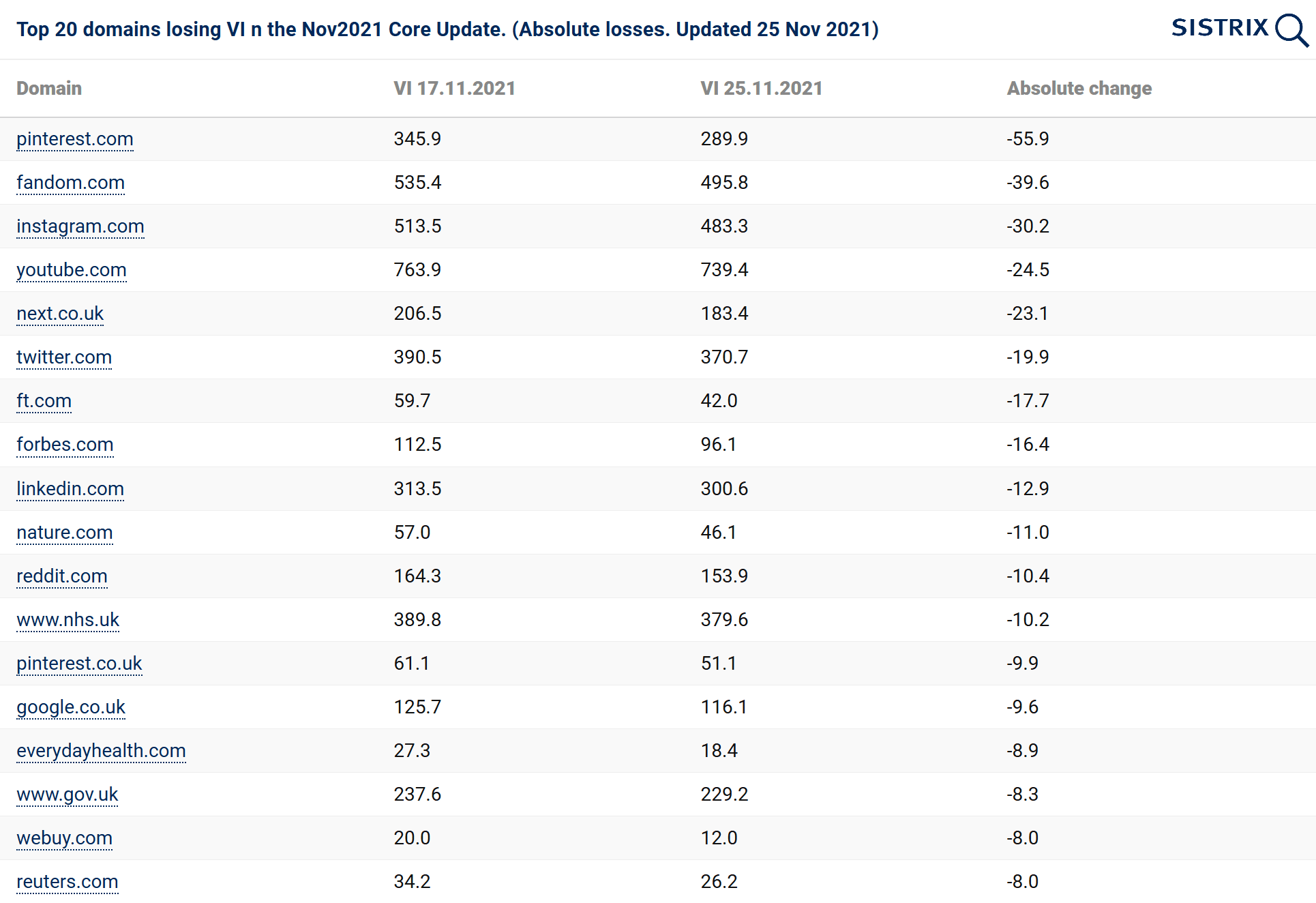
Honestly, interesting to see reuters on the list. I think this update has nothing to do with authority or content quality, it's probably a specific type of content, and from just looking at the top impacted domains, it seems that image and video heavy pages were demoted.
Google's August 2022 helpful content update
Google describes this update as "This update introduces a new site-wide signal that we consider among many other signals for ranking web pages. Our systems automatically identify content that seems to have little value, low-added value or is otherwise not particularly helpful to those doing searches."
The update does not impact only any content labeled as "unhelpful", it impacts all content on your website, if your website has been determined to have relatively high amounts of unhelpful content. And the level of impact is directly proportional to how much unhelpful content you have on your website.
And is it the case with Google updates that their impact isn’t felt all at once, but rather builds gradually over time. This is a very important distinction to know, if you're diagnosing your website and wondering whether this was a technical issue the website is facing, or an issue from Google's side and how the website is ranked. [Read here for more about how to analyze SEO traffic decline]
This update is not a manual decision situation but rather a machine-learning based classifier, that runs continuously. This is good because, in Google's own words this is "allowing it to monitor newly-launched sites and existing ones. As it determines that the unhelpful content has not returned in the long-term, the classification will no longer apply."
So according to Google's official statement, websites can and should be able to recover from HCU.
My 2 Cents
Let’s get one thing straight: it’s easy to sit at home and shout, “You should’ve done this or that to recover.” We’re not doing that today. My goal is to share lessons and insights we can actually apply.
There are two things in their list of fixes that caught up my attention, and I don't think they were a good idea.
Over-deleting content.
Removing content should be always done in caution. They removed entire categories and thousands of pages, for the sole purpose of narrowing down their focus. Not because the content was bad/low quality, but because they wanted to "to narrow the scope" in hopes of recovery.
Here’s the issue: you’ll lose traffic either way, and you won’t know whether your site actually recovered. If the content was helpful and relevant to your lifestyle audience, deleting it doesn’t help—because you need content to get traffic in the first place.
And even if deletion somehow “worked,” what are you recovering to? A smaller site with fewer pages will naturally earn less traffic. You can’t expect to return to past traffic levels after removing whole categories.
Also, if mass-producing AI slop content harms your site, then mass-deleting good content is definitely going to hurt your traffic.
Note: Removing irrelevant content can absolutely help. But not in DMarge’s case. They’re a lifestyle publication, broad topics are normal for that niche.
However, for sites like GeeksForGeeks, which were also hit, cleaning up irrelevant content did help. They’re a technical site, and had drifted into off-topic content like “Andrew Tate net worth.” Really?

Changing URL structure, rarely worth it
This is one of the most misused/misunderstood tactics in SEO. DMarge in hopes of recovering, changed the URL structure and created tons of redirects, and then... crickets... noting happened.
Here are the facts:
Google does not rely on URL structure to understand the structure of a site. It's in the official documentation here:

John Muller also said: "Often SEOs over-focus on URL structure (imo) – if the context of your pages isn't clear from the ... text on the page, then the URL structure isn't really going to fix that."
So my advice is to avoid making major changes or overhauls to your URLs in general—they usually offer little to no SEO value. Plus, your site will need time to recover on its own.
And here’s the real challenge: if your site was on track to recover around the same time you decided to change your URL structure (which is exactly what DMarge did), you won’t know whether you recovered or not… for quite a while.
And that would result in you doing MORE unnecessary work/changes to your website. I have helped a website recover from a manual penalty, I know it's different from an automated classifier, but there's a lot to learn so maybe I'll write about this soon!
And That’s a Wrap (Almost 😄)
From an armchair SEO perspective, what DMarge needed was a solid diagnosis, a clear strategy, and enough time to wait it out—without making changes that would inevitably lead to further traffic loss.
This reminds of me of my startup days, when I was following every advice of every mentor I have a 1-2-1 session with. Ya... don't do that. These are good to get ideas, but you cannot form a growth strategy by collecting bits and pieces of random advice.
I may be totally off...not all websites are able to recover from HCU, but this is my 2 cents.
That's that for today folks and see you next newsletter!
Support the SEO Riddler!
- Sign up for my newsletter if you're not already.
- Share the newsletter and invite your friends to signup. Help me reach 2k signups by end of 2025 please 🙂
- Provide feedback on how I can make this newsletter better!!!
- Buy me coffee.
- If you're an SEO tool or an SEO service provider, consider sponsoring my newsletter. I'm also open to other partnership ideas as well.
Disclaimer: LLMs were used to assist in wording and phrasing this blog.
The SEO Riddler Newsletter
Join the newsletter to receive the latest updates in your inbox.

